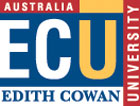Master of Engineering – Civil with Environmental Engineering Specialisation
Master of Engineering – Civil with Environmental Engineering Specialisation
This specialisation is designed for students interested in civil and environmental engineering. It provides graduates with strong competencies in areas including concrete and steel design, construction technology and site management, environmental risk assessment and management. This enables graduates to gain a strong knowledge in environmental and humanitarian engineering aspects when…
Categories
COURSE DESCRIPTION
This specialisation is designed for students interested in civil and environmental engineering.
It provides graduates with strong competencies in areas including concrete and steel design, construction technology and site management, environmental risk assessment and management. This enables graduates to gain a strong knowledge in environmental and humanitarian engineering aspects when working on civil engineering projects.
Learning Outcomes
Apply cognitive, technical and creative skills to investigate, evaluate and synthesise complex ideas, concepts and theories in authentic civil and environmental engineering situations.
Apply high-level communication and collaboration skills in a professional civil and environmental engineering context.
Reflect critically on a complex body of knowledge, research principles and methods within the civil and environmental engineering discipline to demonstrate mastery of professional practice.
Use high level self-management skills to initiate, plan and execute a substantial civil and environmental engineering project.
Career Opportunities
Employment opportunities
Employment opportunities include the development, design, improvement and construction of infrastructure and other civil engineering systems considering the effects of climate change and human impact on the resources and environment.
Possible future job titles
Civil Engineer, Environmental Engineer, Structural Engineer, Water Resource Engineer, Construction Manager
REQUIREMENTS
All applicants are required to have completed a Bachelor degree in engineering or engineering technology, with equivalents considered. Alternatively applicants can have completed the Bachelor of Engineering Science, with equivalents considered, successful applicants with an Engineers Australia accredited 4 year AQF level 8 Bachelor of Engineering Honours (or equivalent) may be eligible for a reduced course duration through the award of credit and recognition of prior learning.
Academic admission requirements (Band 8) may be satisfied through completion of one of the following:
Bachelor degree in a cognate discipline; or
Where accepted, equivalent prior learning, including at least five years relevant professional experience.
English competency requirements:
IELTS Academic: An overall band minimum score of 6.5, with no individual band less than 6.0.) (Results are typically valid for 2 years and online tests are not acceptable.)
TOEFL iBT: TOEFL iBT: 84 (with no score below 17)
TOEFL Paper-Based Test (PBT): Minimum score of 573, including Test of Written English of 5.0 or better. (Results are typically valid for only 2 years)
Pearson Test of English (PTE): PTE Academic 58, with no score less than 50 for postgraduate standard entry courses. (Results are typically valid for only 2 years)
EDUCATIONAL INSTITUTION
Edith Cowan University (ECU) is a large, multi-campus institution serving communities in Western Australia and internationally.ECU was awarded university status in 1991, but despite its relative youth, the University has a proud history of more than a century of service to education in Western Australia and is recognised for its teaching and learning, excellence in research, and partnerships with the community.We have more than 23,300 students, including around 18,500 undergraduates and 4,800 postgraduates. Approximately 3,600 international students attend the University, originating from 104 countries.We are a progressive University with courses developed through ongoing industry input, and employing lecturers who engage fully with their students. We’re a university that knows while knowledge is important, understanding comes from experience –experience that enables you to adapt what you’ve learned to whatever opportunities come your way. Because that’s when you do more than just survive in this world. You thrive in it.




